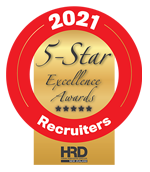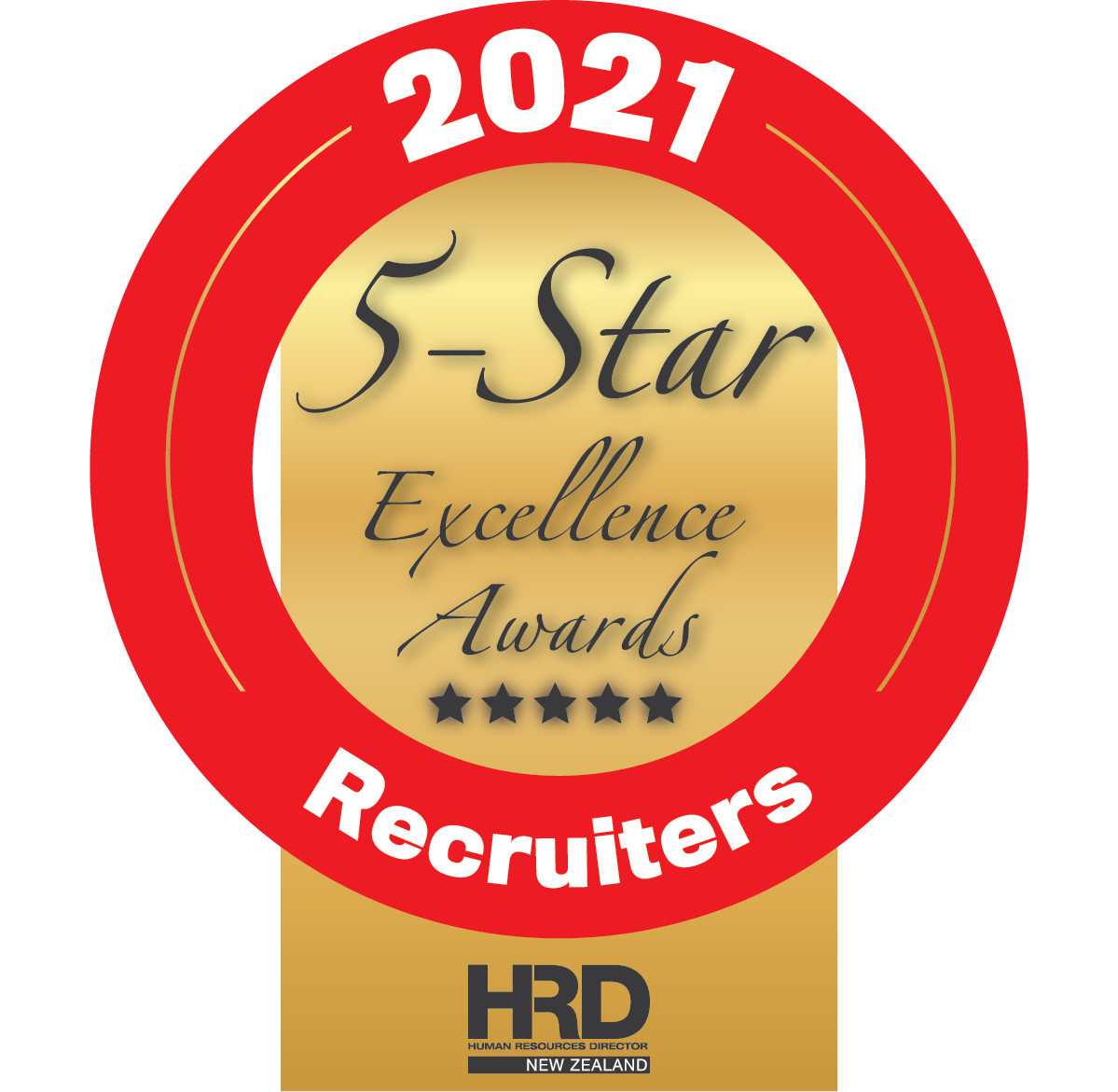

Jump to winners | Jump to methodology | View PDF
The COVID-19 pandemic slowed hiring activity across the world, but the impact of the crisis on job markets has been uneven. In major economies like the US, nearly three in five CEOs report their organisations either scaled back or halted recruitment plans as part of their cost containment strategy. Globally, 38% of companies implemented a hiring freeze while 17% reduced the number of new hires.
In New Zealand, which draws from a diverse pool of local and international talent, the demand for workers remained strong despite the economic pressures of the pandemic. However, recruitment was stymied, not only as a result of corporate downsizing but also, more significantly, of lockdown measures, according to 43% of recruiters interviewed by HRD New Zealand.
“Organisations were concerned about the economic fallout of the crisis, ultimately putting a halt to permanent recruitment overnight. Tightening of the belt saw a reduction in temporary needs, and where talent was required, many organisations were not equipped to on-board new team members remotely due to lockdown,” said Roman Rogers, Regional General Manager, New Zealand, Hudson.
Border restrictions, in particular, made it difficult for employers to find high-calibre recruits from a global talent pool, particularly when searching for executive leaders and highly skilled professionals.
“Accessing talent has been a significant challenge. The shutting of borders has taken its toll across the board with many industries reliant on international talent or travellers to meet their hiring needs. With a finite talent pool available, the need to be expert at sourcing talent and being clear about the employee value proposition has become increasingly important,” Rogers said.
This trend forced nearly a third of recruitment firms surveyed by HRD to develop new talent acquisition strategies, such as partnering with immigration lawyers, to fast-track the hiring of CEOs and managing directors in response to the country’s executive talent crunch.
“Immigration [officials] have been understandably reluctant to allow people to come and go as freely as they did prior to COVID-19. As a result, the search for talent has been largely limited,” said Rob Bishop, Director, Executive and Leadership Recruitment, Bishop Associates Recruitment.
Reports of massive layoffs in other regions, such as North America and Asia, may have created the impression that employers could now take their time and take their pick in the candidate selection process. The reality in New Zealand, however, was that – despite a slower pace of hiring in most sectors – the talent war overall had not waned during the crisis. There were simply shifts in recruitment priorities.
In the early months of the pandemic, employers worldwide were generally cautious about plans to increase headcount. However, as industries amplified their digital strategies to survive the recession, employers were soon faced with the need to hire additional workers who could support changing consumer demands.
New Zealand employers placed a premium on the quality of their new hires and focused on reducing time-to-hire in the process. These efforts resulted in a spike in demand for high-calibre talent. “Except for industries, including tourism and hospitality, which were hardest hit, most sectors were still in a candidate-short market,” said Shannon Barlow, Managing Director, Frog Recruitment.
Research from HRD New Zealand showed that, even in the face of crisis, there were more than 200 recruitment agencies across the country that remained active during the pandemic. The finding suggests there was steady movement in most segments of the job market, just as companies came out of lockdown and implemented recovery measures, such as calling back employees who had been stood down and adding newcomers to the headcount.
“As many organisations now return to growth and look to invest in their workforces, there are lots of opportunities for job seekers,” said Adam Shapley, Managing Director, New Zealand, Hays.
As with any crisis, the pandemic opened new areas of growth in the talent economy, according to nearly a third of respondents (29%). “COVID-19 created a huge demand nationally for essential-service workers across a range of organisations,” said Katerina Makarios, Regional Manager, H2R Consulting.
This also led some recruiters to pivot towards volume hiring in high-growth industries such as health care, IT and ecommerce. One example comes from a top recruitment firm tapped to hire as many as 1,000 contact tracers for the government within days.
Despite facing a large volume of applications in certain sectors, top recruitment firms are also becoming more mindful of the difficulties that candidates face during screening, and are therefore working to improve the overall candidate journey. “Empathy through the recruitment process is hugely important, and especially so in the current environment – when, in managing large volumes of applications, it can be easy to forget that,” Makarios said.
Recruiters in New Zealand are on the frontlines of a changing job market. Yet, even as employers start to reinvest money towards hiring in 2021, the highly skilled employees they are hiring for have also grown equally cautious of switching jobs in the middle of a pandemic. Uncertainty over when the global health crisis – and, for many, its resulting economic hardship – will end has caused candidates to become risk-averse. As a result, talent attraction has become more challenging for recruiters.
“Job seekers are definitely wary of leaving their current employer for a new role in these uncertain times and this is affecting the application numbers we are seeing currently,” said Jo Henderson, co-founder and consultant, Recruitment Studio.
In some cases, recruiters have had to veer clients away from poor recruitment practices, such as prolonging the screening process or offering below-market salaries.
“People’s uncertainties or perceptions of the market has been a big challenge. We were faced with the news of mass redundancies, businesses going under, and over half of businesses taking measures such as reduced work hours or cancelled bonuses to stem labour costs; you can understand why employers may have thought talent would come cheap,” Barlow said.
“On the other side of the fence we experienced candidate hesitancy, with one out of five job seekers reluctant to move if offered a new job. This meant educating clients that there was still high competition for quality candidates and that these candidates were more risk-averse than before, so employers needed to showcase their flexibility and employee benefits – financial and otherwise,” Barlow said.
The shift to remote recruiting in the COVID-19 pandemic should also encourage talent leaders to rethink their own digital culture, HRD’s respondents said. After all, in the new era of talent management, most social interactions are mediated by technology.
“Businesses are finding it particularly difficult to create and maintain culture during this period. The employee experience can radically change when people are working from home,” Shapley said.
Nearly 86% of New Zealand’s top recruiters, polled by HRD, welcome the idea of remote working. However, the shift to a digital-first interaction with candidates and clients has its drawback. “It is harder to get a client to offer a candidate they have not met in person,” said Bianca Jones, Country Manager, Talent International.
Remote recruiting may appear highly impersonal compared with traditional face-to-face recruiting, but top firms are learning to embrace the challenges of tech-based candidate screening by maintaining an employee-centric approach. “While there are [applicant tracking] systems that can assist with narrowing down candidate numbers, at the end of the day recruitment is about engaging with people – that human interaction,” Makarios said.
For other firms eager to go digital-first, face-to-face meetings are still important for recruiters to build relationships, but it’s just one element of successful hiring.
HRD New Zealand’s 5-Star Recruiters highlights the industry’s top-performing recruitment firms that are raising the standards of talent acquisition, candidate relationship management and employer brand marketing. The award recognises firms based on ratings from HR leaders across the country.
New Zealand has more than 200 recruitment agencies that are actively connecting employers with the right talent base, both locally and internationally. The recruiters included in this awards list demonstrate industry knowledge and resourcefulness in uncovering talent pipelines for specific industries.

What are the star ratings?
A recruiter is given a five-star rating for consistently delivering across several areas for employers. This includes an outstanding combination of good customer service, ability to source the best candidates, being value for money, offering speed of placement and strong retention rates.
How are they calculated?
A team of researchers at HRD analysed data from hundreds of HR professionals, collected through surveys and in-depth interviews, to determine the final ratings of each shortlisted recruiter. The rigorous process ran for about three months in New Zealand. They weighted each criterion, depending on its relative importance for employers. Then they applied an algorithm to the data to find out which criteria mattered most to HR. This determined how many stars each recruiter received. Those with the highest scores across all criteria were chosen as overall winners of the award.